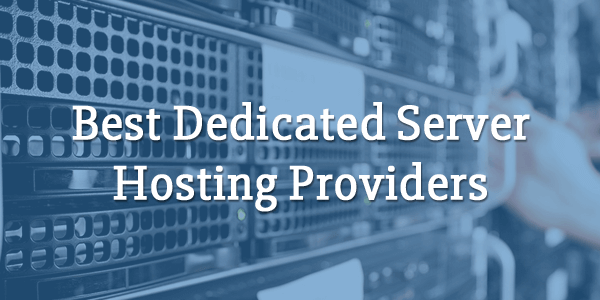Aws Cloud Hosting Services
In digital transformation, Amazon Web Services (AWS) has emerged as a paragon of cloud hosting solutions. As businesses pivot towards cloud computing, AWS offers an expansive suite of services designed to meet diverse needs, providing unparalleled flexibility, scalability, and reliability.
The Evolution of Cloud Computing: A New Era for Businesses
Cloud computing has evolved from a nascent technology to a cornerstone of modern business infrastructure. Initially, businesses relied on on-premises servers, grappling with physical hardware limitations.
The advent of cloud computing heralded a new era, where resources are available on demand, scalability is effortless, and geographical boundaries are dissolved. AWS, a pioneer in this space, has continuously innovated to redefine what’s possible in cloud hosting.
Why AWS Stands Out in the Cloud Hosting Arena
AWS distinguishes itself through a robust ecosystem of services, a commitment to security, and a customer-centric approach. Its global network of data centers ensures low latency and high availability, while the breadth of its service offerings—from compute power and storage to machine learning and analytics—caters to businesses of all sizes. AWS’s relentless innovation and comprehensive support system make it a leader in the cloud hosting domain.
Understanding AWS Cloud Hosting
What is AWS Cloud Hosting?
AWS cloud hosting leverages Amazon’s powerful infrastructure to deliver hosting solutions that are flexible, scalable, and secure.
Whether running a simple website or a complex application, AWS provides the resources to ensure optimal performance. At its core, AWS cloud hosting involves renting virtual servers and associated resources, allowing businesses to scale up or down based on demand.
Key Benefits of AWS Cloud Hosting
AWS cloud hosting offers several compelling benefits:
– Scalability: Seamlessly scale resources to meet fluctuating demands without overprovisioning.
– Reliability: Leverage AWS’s global infrastructure for high availability and disaster recovery.
– Security: Benefit from advanced security features, compliance certifications, and a shared responsibility model.
– Cost Efficiency: Pay only for what you use, with various pricing models to suit different needs.
– Flexibility: Choose from a wide array of services and configurations to tailor your hosting environment.
Comparing AWS to Other Cloud Hosting Providers
When compared to other cloud hosting providers, AWS stands out due to its comprehensive service portfolio, extensive global reach, and continuous innovation. While competitors like Microsoft Azure and Google Cloud Platform offer strong alternatives, AWS’s mature ecosystem, rich feature set, and extensive customer support often give it an edge.
AWS Cloud Hosting Services Overview
Elastic Compute Cloud (EC2): The Backbone of AWS Hosting
Amazon EC2 provides resizable compute capacity in the cloud, allowing businesses to run applications on virtual servers. EC2 instances can be scaled up or down as needed, and users can choose from a variety of instance types optimized for different use cases.
Simple Storage Service (S3): Secure and Scalable Storage Solutions
Amazon S3 offers scalable object storage with industry-leading durability, availability, and performance. It is ideal for storing and retrieving any amount of data from anywhere on the web, making it perfect for data backup, content storage, and big data analytics.
Relational Database Service (RDS): Managed Database Flexibility
Amazon RDS simplifies the setup, operation, and scaling of relational databases in the cloud. It supports multiple database engines, including MySQL, PostgreSQL, and Oracle, providing automated backups, patch management, and database scaling.
Elastic Load Balancing (ELB): Ensuring High Availability
Amazon ELB distributes incoming application traffic across multiple targets, such as EC2 instances, to ensure high availability and fault tolerance. It automatically scales to handle traffic as demand increases or decreases.
Getting Started with AWS Cloud Hosting
Creating Your AWS Account: A Step-by-Step Guide
To embark on your AWS journey, you’ll need to create an AWS account. This involves providing basic information, setting up billing preferences, and verifying your identity. AWS offers a free tier with limited resources, allowing you to explore its services without incurring costs.
Selecting the Right AWS Hosting Plan for Your Needs
Choosing the right hosting plan depends on your specific requirements. AWS provides various instance types optimized for compute, memory, storage, and network performance. Assess your application’s needs to select the most suitable plan.
Setting Up Your First AWS Instance
Setting up your first AWS instance involves selecting an Amazon Machine Image (AMI), choosing an instance type, configuring instance details, adding storage, and reviewing and launching the instance. AWS’s intuitive console guides you through each step, ensuring a smooth setup process.
Navigating the AWS Management Console
Introduction to the AWS Management Console
The AWS Management Console is a web-based interface that allows you to manage your AWS services. It provides a unified view of your resources, enabling you to monitor, configure, and optimize your cloud infrastructure.
Essential Tools and Features for Effective Management
The console includes essential tools such as AWS CloudFormation for resource provisioning, AWS CloudWatch for monitoring, and AWS Identity and Access Management (IAM) for access control. These tools help streamline management and enhance security.
Tips for Efficiently Managing Your AWS Environment
Efficient management of your AWS environment involves regular monitoring, automating tasks where possible, and implementing best practices for security and cost management. Utilize AWS’s extensive documentation and support resources to optimize your operations.
Optimizing AWS Cloud Hosting Performance
Performance Tuning: Getting the Best Out of AWS
Performance tuning involves optimizing resource allocation, leveraging caching mechanisms, and using content delivery networks (CDNs) like AWS CloudFront. Regular performance audits help identify and resolve bottlenecks.
Leveraging Auto Scaling for Dynamic Workloads
AWS Auto Scaling automatically adjusts your resource capacity to maintain steady, predictable performance at the lowest possible cost. It dynamically scales your EC2 instances based on demand, ensuring your application remains responsive.
Utilizing AWS CloudFront for Content Delivery Optimization
AWS CloudFront is a CDN that delivers content to users with low latency and high transfer speeds. By caching content at edge locations worldwide, CloudFront ensures fast and reliable delivery of your web assets.
Securing Your AWS Cloud Hosting Environment
Best Practices for AWS Security
Security best practices include implementing multi-factor authentication (MFA), encrypting data at rest and in transit, and regularly auditing security groups and IAM policies. AWS provides comprehensive security tools to help you safeguard your environment.
Utilizing AWS Security Tools: IAM, GuardDuty, and More
AWS IAM allows you to manage access to AWS services and resources securely. AWS GuardDuty is a threat detection service that continuously monitors for malicious activity and unauthorized behavior. These tools, among others, fortify your security posture.
Protecting Against Common Threats and Vulnerabilities
Common threats include DDoS attacks, data breaches, and insider threats. AWS Shield and AWS WAF protect against DDoS attacks, while regular security assessments and updates help mitigate vulnerabilities.
AWS Hosting for Various Applications
Web Hosting: From Simple Websites to Complex Applications
AWS provides scalable hosting solutions for websites of all sizes. Whether you’re hosting a simple static website or a complex web application, AWS offers the tools and resources to ensure high performance and reliability.
E-commerce Hosting: Scalability for Growing Businesses
E-commerce platforms require robust hosting solutions to handle traffic spikes and ensure secure transactions. AWS’s scalable infrastructure and comprehensive security features make it an ideal choice for e-commerce hosting.
Enterprise Solutions: Hosting Business-Critical Applications
For enterprises, hosting business-critical applications on AWS offers benefits like high availability, disaster recovery, and compliance with industry standards. AWS’s enterprise-grade services ensure your applications remain secure and performant.
Development and Testing Environments: Flexibility for Developers
AWS provides flexible development and testing environments, allowing developers to quickly spin up instances, test new features, and deploy updates. Services like AWS CodePipeline and AWS CodeBuild streamline the development process.
Advanced AWS Hosting Solutions
Big Data and Analytics: Harnessing AWS for Data Insights
AWS offers a suite of big data and analytics services, including Amazon Redshift, Amazon EMR, and AWS Glue. These services enable businesses to analyze large datasets, gain insights, and make data-driven decisions.
Machine Learning and AI: Innovating with AWS Services
AWS provides machine learning and AI services like Amazon SageMaker, AWS DeepLens, and Amazon Rekognition. These services empower businesses to build, train, and deploy machine learning models at scale.
Serverless Computing: The Future with AWS Lambda
AWS Lambda allows you to run code without provisioning or managing servers. It automatically scales your applications and runs code in response to triggers, enabling you to build serverless applications with ease.
Containers and Microservices: Modernizing Applications with AWS ECS and EKS
AWS ECS and EKS provide managed container services for running Docker containers. These services simplify the deployment and management of microservices architectures, enhancing application scalability and resilience.
Cost Management and Optimization on AWS
Understanding AWS Pricing Models
AWS offers various pricing models, including on-demand, reserved, and spot instances. Understanding these models helps you choose the most cost-effective options for your workload.
Strategies for Cost-Effective AWS Usage
Strategies for reducing costs include rightsizing your instances, utilizing reserved instances, and leveraging AWS’s cost optimization tools. Regularly reviewing your usage and adjusting resources ensures cost efficiency.
Monitoring and Analyzing Costs with AWS Cost Explorer
AWS Cost Explorer provides visibility into your AWS spending. It offers tools for analyzing cost and usage patterns, creating budgets, and identifying areas for cost savings.
Real-World Success Stories with AWS
Case Studies of Companies Thriving on AWS
Numerous companies across various industries have thrived by leveraging AWS. These case studies showcase how businesses have harnessed AWS’s capabilities to drive innovation, improve efficiency, and achieve growth.
Key Takeaways and Lessons Learned
From these success stories, key takeaways include the importance of continuous optimization, embracing automation, and leveraging AWS’s vast ecosystem of services to stay ahead of the





